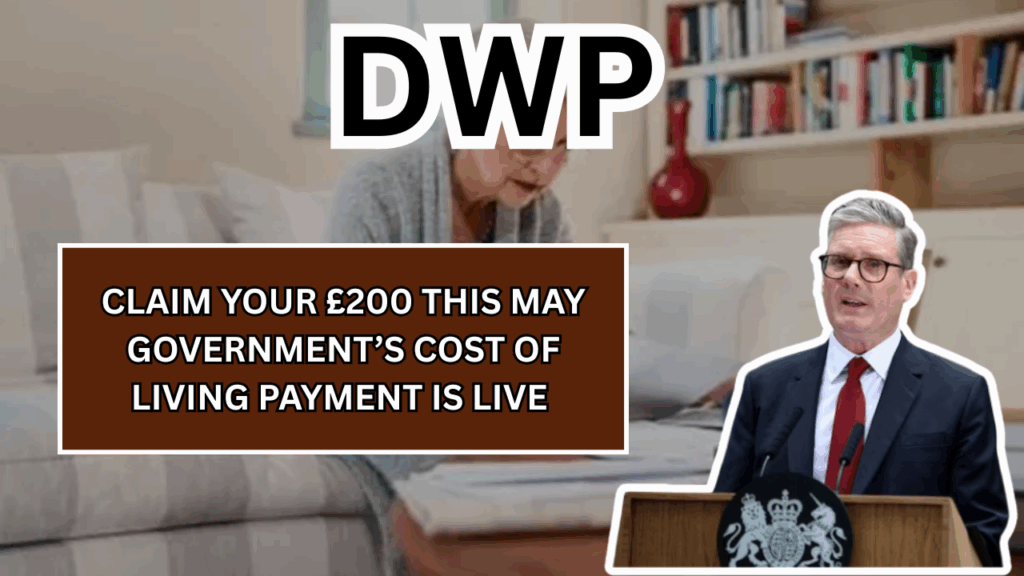Thousands of low-income households in the UK can receive up to £200 in cost of living support this May through the government-backed Household Support Fund (HSF). The fund, distributed by local councils, is designed to help people struggling with essential expenses such as food, energy, and household bills during ongoing inflationary pressures.
The financial assistance is part of the £842 million extension of the Household Support Fund, announced by the Department for Work and Pensions (DWP), with funding now extended to September 30, 2024.
Let’s break down who is eligible, how you can apply, and when you can expect to receive the money.
What is the Household Support Fund?
The Household Support Fund was launched in 2021 to help vulnerable people deal with rising living costs. Administered by local authorities, the fund supports households in financial hardship whether or not they receive benefits.
Each local council is given a share of the overall HSF budget and has the freedom to decide how the funds are used and who qualifies, based on the needs of their community.
Who Can Get the £200?
The specific eligibility criteria and payment amount vary from council to council. However, many councils are offering payments of up to £200 to qualifying households.
You could be eligible if:
- You receive means-tested benefits such as Universal Credit, Pension Credit, or Income Support
- You are a pensioner not claiming Pension Credit
- You have children eligible for free school meals
- You are a low-income household facing financial hardship
- You do not receive any benefits but still struggle to afford food or utilities
Important: Even if you don’t claim benefits, you may still qualify. The support is designed to reach those not covered by other schemes.
Local councils often prioritise:
- Families with dependent children
- People with disabilities or chronic illness
- Elderly residents
- People facing fuel poverty
How to Apply
Applications must be made through your local council’s website. Each council has its own online application process, which typically requires:
- Proof of identity ( utility bill or council tax statement)
- Proof of income or benefit statements
- Bank statements or other financial evidence
Once on your council’s site, search for the “Household Support Fund” or “cost of living support.”

When Will You Get the Money?
The timing of payments varies, but most councils have already started accepting applications and are aiming to distribute payments by the end of May 2025.
Some councils may:
- Send vouchers for food or utility top-ups
- Offer direct bank transfers
- Provide prepaid cards for eligible expenses
Councils like Cheshire West and Chester and Nottinghamshire have confirmed that the money will be sent on a rolling basis as applications are processed.
Additional Support You May Qualify For
In addition to the £200 cost of living boost, you may also be eligible for:
- School holiday food vouchers for children on free meals
- Energy bill grants from providers such as British Gas and EDF
- Help from local food banks or community support schemes
Be Aware of Deadlines
The Household Support Fund is limited and distributed on a first-come, first-served basis. Some councils may close applications early if their funding cap is reached.
Apply as early as possible to avoid missing out. Deadlines may differ depending on your local authority. For example:
- Cheshire West and Chester Council – Applications open now, payout by end of May
- Leicestershire Council – Closes June 30
- Lancashire Council – Rolling applications until funds run out
Final Thought
As the cost of living crisis continues, this £200 government boost offers a much-needed relief for many UK households. Whether you’re dealing with soaring energy bills or struggling to cover everyday essentials, this support is meant to lighten the load.





